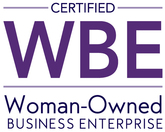TOOLS and RESOURCES
|
Evaluation of Outcomes
Why is it Important to Measure Outcomes? Organizations that are serious about their theory of change engage in regular self-assessment and evaluation of outcomes. The results of measuring outcomes can be shared with stakeholders to illustrate the impact of an organization's programs and activities, and to demonstrate the difference the organization is making in its community and in peoples' lives. Seeing the difference an organization is making on paper, in video, through testimonials -- is powerful. To be successful an organization must embrace a culture that supports outcomes thinking. This is not as daunting as it sounds. First, understand that a little self-reflection, when implemented for the right reason, is far from a waste of time. As urged in the powerful but easy-to-read book Leap of Reason, managing to outcomes needs to be an integral part of any organization in order for it to be sustainable. Here are some resources to help your organization along the path to effective self-assessment and evaluation of outcomes - and ultimately to more effective delivery of its programs, services, and mission. Tools for Evaluation of Outcomes
Free Virtual After-school Programming: A Quick Resource Guide Please contact us for your free copy of this guide with links to everything you need to implement virtual K-12 after-school activities. |
How Should a Nonprofit Evaluate Programs?
Source: National Council of Nonprofits: http://www.councilofnonprofits.org/resources/resources-topic/evaluation-and-measurement Guidelines for Developing Outcomes/Goals for Evaluation Well-written outcomes or goals should have the following characteristics of “SMART” goals: Specific Outcomes should be specific to the program and limited in scope Measureable Outcomes need to be measured in some way, and practical to assess Achievable Avoid unrealistic goals. Be sure they make sense, given your program and its activities. Relevant Outcomes should be related to and significant for your program. Time sensitive Outcomes should be stated within a particular timeframe, so you know your beginning and ending points. |

